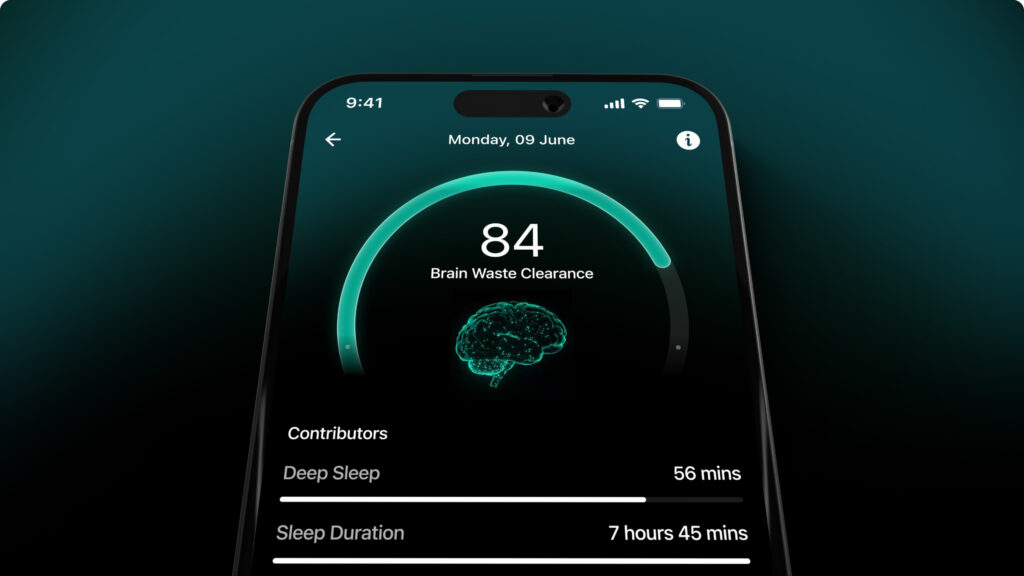We’ve all been warned that the supple metabolism we enjoy in our youth will eventually slow down as we age, so it’s no surprise that in our mid-thirties, even the least conscious among us are likely to start furiously tracking calories and taking our fitness regimens up a notch. But what is the relationship between ageing and metabolism? What does the research say? And finally, how can we maintain our metabolisms in concurrence with this perfectly natural biological process?

Highlights
- More muscle means better resting metabolism,
- Lower activity levels are one of the key influences in metabolic decline with age,
- The decline of metabolism doesn’t happen with age until we’re 60.
How does our metabolism change with age?
Metabolism is the sum total of all those chemical reactions that keep you alive and functional. It is also the function that determines how many calories you burn in a day. So the faster your metabolism is, the sooner you lose those extra pounds. The speed of your metabolism depends on the following factors:
- Thermic effect of food (TEF): The very process of digesting and absorbing food into the body burns calories. TEF constitutes 10% of the calories you burn on a daily basis.
- Exercise: The calories you burn through exercise.
- Resting metabolic rate (RMR): The calories you burn while essentially doing nothing, for instance, when you’re asleep or resting. This is the least amount needed in order to keep you alive.
- Non-exercise activity thermogenesis (NEAT): The calories you burn through activities such as standing, cooking, doing household chores or other activities that do not involve exercise.
There are other factors that also play a role in the progress of our metabolism, and age is one of them—primarily due to reduced activity, muscle loss and the ageing of our internal components. Let’s look at these individually in more detail:
Reduced activity: We burn anywhere between 10%-30% of calories on a daily basis through activities, both exercise and non-exercise. This can even go up to 50% for fitness freaks and other hyper-active people. Since activity levels generally tend to drop as we get older, this is one of the key influences in an age-related metabolic slowdown.
Loss of muscle mass: We lose about 3%-8% of muscle every decade after we hit 30. Research shows that by the time we are 80, we have about 30% less muscle compared to our 20s. Since more muscle means better resting metabolism, this loss of muscle with age—known as sarcopenia—slows down our overall metabolism. Since muscle mass is affected by our activity levels or lack thereof, being less active is one reason we lose more muscle with age.
Slowdown of metabolic processes: How many calories we burn while resting (RMR) is determined by certain chemical reactions in the body. These chemical reactions are, in turn, driven by two cellular components—sodium-potassium pumps (found in cellular membranes and in charge of continually pumping out sodium ions out of the cells and potassium ions into the cells) and mitochondria—which become less efficient with age, slowing down metabolism.
What does the research say about metabolism and age?
While the matter of metabolic decline with age is a fact, research has some surprising findings about how ‘age’ is defined here. Herman Pontzer, associate professor of evolutionary anthropology at Duke University, along with a team of scientists, studied the average calories burned by more than 6600 people between the ages of 1 week and 95 years as they went about their lives in 29 countries.
Here’s what they found: Metabolism peaks around age 1. Babies at this age burn calories 50% faster than adults. This then declines by about 3% per year until they hit 20, after which metabolism plateaus. But the decline of metabolism with age—that we’ve been led to believe happens in our thirties—doesn’t happen until 60.
Even then, it’s gradual, by less than 1% annually. As Pontzer sums it up, “Metabolic rate is really stable all through adult life, [between] 20 to 60 years old. There’s no effect of menopause that we can see, for example. . . .People will say, ‘Well, when I hit 30 years old, my metabolism fell apart.’ We don’t see any evidence of that.”
Ways to maintain your metabolism
Now that we have all the facts about metabolism and ageing in place let’s look at some steps we can take to maintain our metabolism, especially as we get older.
Up your protein intake
Given the natural muscle loss that occurs with age and its direct relationship with metabolism, making sure you’re getting enough protein is imperative. Aim for about 20 grams of protein in every meal, keeping in mind that muscle breaks down during sleep. So do not skip eggs or yoghurt at breakfast.
Keep in mind that the source of your protein is also equally important. Research suggests that animal-based proteins can actually speed up muscle loss. Switch your mutton, beef and pork for some wholesome chickpeas, black beans and lentils, and you’re all set.
Strength training
Make sure your exercise routine includes at least two 20-30 min strength training sessions per week. The more muscle you build, the more calories you’re able to burn!
Stay hydrated
Your body burns more calories when it’s hydrated. Make sure you’re getting at least 8 cups of water per day and even more on workout days.
Cut your alcohol intake
Not only is alcohol empty calories, but it also takes up precious liver time. Your liver could be burning fat in the time it takes to process alcohol!
Get enough sleep
You need at least 7 hours of quality sleep every night in order to keep the hormones in charge of regulating hunger and fullness working right. Not getting enough sleep not only makes you crave sugary, fatty and starchy foods the next day, it also gets in the way of the body’s capacity to burn calories efficiently.
Conclusion
It’s a bummer, but our metabolism does slow down with age due to a number of factors. What we seem to have confused, though, is the specific age around which this decline happens. New research suggests that contrary to popular belief, our metabolic decline does not begin in our 30s, but in our 60s and even then, it’s a gradual process. That said, there are several lifestyle changes we can make in order to maintain our metabolism as we get older.
Disclaimer: The contents of this article are for general information and educational purposes only. It neither provides any medical advice nor intends to substitute professional medical opinion on the treatment, diagnosis, prevention or alleviation of any disease, disorder or disability. Always consult with your doctor or qualified healthcare professional about your health condition and/or concerns and before undertaking a new health care regimen including making any dietary or lifestyle changes.
References
- Why Your Metabolism Slows Down With Age
- Skeletal muscle metabolism is a major determinant of resting energy expenditure. – PMC
- Metabolism Changes With Age, Just Not When You Might Think | Duke Today
- 6 Super-Easy Ways To Boost Your Metabolism After 40 (Yes, It’s Possible!)
- Unlocking the 7 Secrets to Increase Metabolism After 40 – Steward Health Care
About the Author
Judy Balan is a writer and depth psychology enthusiast.







